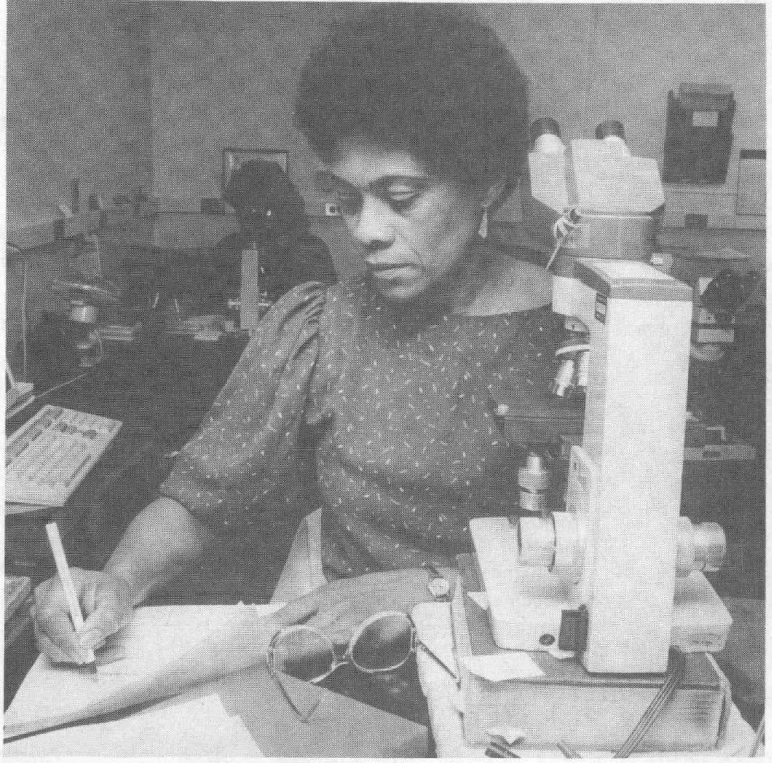Cytotechnologist on:
[Wikipedia]
[Google]
[Amazon]
 Cytotechnology is the microscopic interpretation of cells to detect
Cytotechnology is the microscopic interpretation of cells to detect
American Society for Cytotechnology website
Pathology Laboratory healthcare occupations
 Cytotechnology is the microscopic interpretation of cells to detect
Cytotechnology is the microscopic interpretation of cells to detect cancer
Cancer is a group of diseases involving Cell growth#Disorders, abnormal cell growth with the potential to Invasion (cancer), invade or Metastasis, spread to other parts of the body. These contrast with benign tumors, which do not spread. Po ...
and other abnormalities. This includes the examination of samples collected from the uterine cervix
The cervix (: cervices) or cervix uteri is a dynamic fibromuscular sexual organ of the female reproductive system that connects the vagina with the uterine cavity. The human female cervix has been documented anatomically since at least the t ...
(Pap test
The Papanicolaou test (abbreviated as Pap test, also known as Pap smear (AE), cervical smear (BE), cervical screening (BE), or smear test (BE)) is a method of cervical screening used to detect potentially precancerous and cancerous processes i ...
), lung, gastrointestinal tract, or body cavities.
A cytotechnologist is an allied health professional trained to evaluate specimens on glass slides using microscope
A microscope () is a laboratory equipment, laboratory instrument used to examine objects that are too small to be seen by the naked eye. Microscopy is the science of investigating small objects and structures using a microscope. Microscopic ...
s. Two evaluations can be performed, starting with the initial evaluation, which can be performed by a computer, and points out areas that may be of particular interest for later examination. Then, the cytotechnologist performs a secondary evaluation and determines whether a specimen is normal or abnormal. Abnormal specimens are referred to a pathologist
Pathology is the study of disease. The word ''pathology'' also refers to the study of disease in general, incorporating a wide range of biology research fields and medical practices. However, when used in the context of modern medical treatme ...
for final interpretation or medical diagnosis
Medical diagnosis (abbreviated Dx, Dx, or Ds) is the process of determining which disease or condition explains a person's symptoms and signs. It is most often referred to as a diagnosis with the medical context being implicit. The information ...
.
Much like with other medical fields, a Cytotechnologist's work must be completed with high fidelity and must be interpreted properly. The working relationship between the cytotechnologist and the pathologist
Pathology is the study of disease. The word ''pathology'' also refers to the study of disease in general, incorporating a wide range of biology research fields and medical practices. However, when used in the context of modern medical treatme ...
provides quality control for their work. Discussions between the two and the severity of their disagreements are used as a measurement for quality assurance. For example, when a cytotechnologist is working to construct a tissue microarray (TMA), they must check in with the supervising pathologist at multiple points in the process. The pathologist must first work with the cytotechnologist to make sure they know what to look for in the selection process and then review any selection that the cytotechnologist has concerns about.
Different countries have different certification requirements and standards for cytotechnologists. In the United States, there are currently two routes for certification: a person can first earn a bachelor's degree
A bachelor's degree (from Medieval Latin ''baccalaureus'') or baccalaureate (from Modern Latin ''baccalaureatus'') is an undergraduate degree awarded by colleges and universities upon completion of a course of study lasting three to six years ...
and then attend an accredited program in cytotechnology for one year, or they can attend a cytotechnology program that also awards a bachelor's degree. After successful completion of either route, the individual becomes eligible to take a certification exam offered by the American Society for Clinical Pathology (ASCP). People who complete the requirements and pass the examination are entitled to designate themselves as "CT (ASCP)". People who reside outside the United States have the option to take the certification exam for the ASCPi instead. They must complete all requirements to be eligible, and upon successful completion, can practice in the USA. The American Society for Cytotechnology (ASCT) sets U.S. professional standards, monitors legislative and regulatory issues, and provides education. Individual states regulate the licensure of cytotechnologists, usually following American Society of Cytopathology
The American Society of Cytopathology (ASC), founded in 1951, is a national professional society of physicians, cytotechnologists and scientists who are dedicated to cytopathology
Cytopathology (from Greek , ''kytos'', "a hollow"; , ''pathos ...
(ASC) guidelines.
Other countries have their own versions of the ASCT, including the British Association of Cytopathology (BAC) in the UK and the European Federation of Cytology Societies (EFCS) in the EU.
The ASC is for cytopathologists but certain qualified cytotechnologists can join it as well.
History
ASCP certified the first cytotechnologist in 1957. In the 1970s, the number of schools peaked at 130, before dropping to 32 in 2011.See also
* Gynaecologic cytology *Cytopathology
Cytopathology (from Greek , ''kytos'', "a hollow"; , ''pathos'', "fate, harm"; and , ''-logia'') is a branch of pathology that studies and diagnoses diseases on the cellular level. The discipline was founded by George Nicolas Papanicolaou in ...
References
{{reflistExternal links
American Society for Cytotechnology website
Pathology Laboratory healthcare occupations